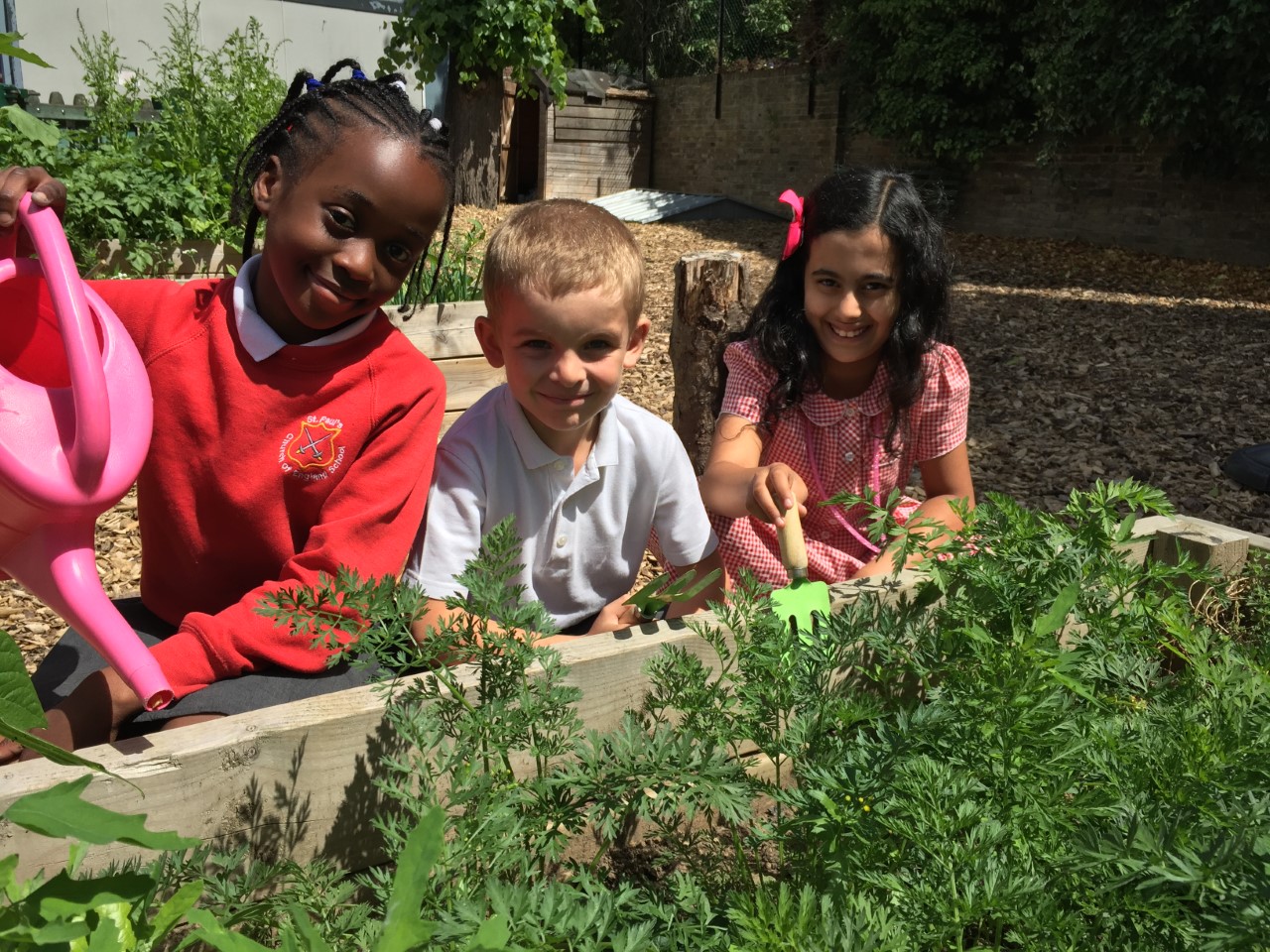‘Edible classrooms’ and why School Food Matters thinks all children should experience them

Over the last 15 years, non-profit organisation School Food Matters has run food education projects with over 211,000 children in hundreds of schools. These projects have offered children the chance to get outside, grow, cook and even sell their own fruit and vegetables.
School Food Matters think access to nature is a right for every child and a great way to nurture wellbeing and learning at school. Nature has many benefits and the organisation sees the impact it has in schools every day.
Many children have little opportunity to see food growing, so they may only know about food coming from supermarket shelves. That is why it is much more special to see them getting their hands dirty, using tools and learning first-hand about the importance of pollinators, soil and compost.
2022 research from the Academy of Nutrition and Dietetics shows that children who experience growing vegetables and fruit are more likely to be open to eating more, and a greater variety, of healthy fresh foods.
School Food Matters said they have experienced this first-hand, stating that they have seen attitudes to eating vegetables change, which is a step towards improved health outcomes for children.
The opportunity to take time out and be calm, surrounded by nature, is good for the wellbeing of all schoolchildren. School Food Matters said they have seen children with special educational needs especially benefit, away from the noise and pressures of the classroom.
The organisation also offers a ‘Welcome’ programme, which provides gardening sessions in schools for refugee children and their parents. It offers an outdoor experience for families, even when language might be a barrier.
Teachers find access to a garden provides multiple opportunities to improve the learning experiences of all ages and abilities in the school, whether it is nature and habitat on the science curriculum, enjoying the achievement of children harvesting their own carrots, or allowing quiet time-out to just sit and read amongst the plants.
To find a food education project that might benefit your school visit School Food Matters website.
Two primary schools will be receiving School Food Matters’ Chelsea garden after the show is over. Discover more here






